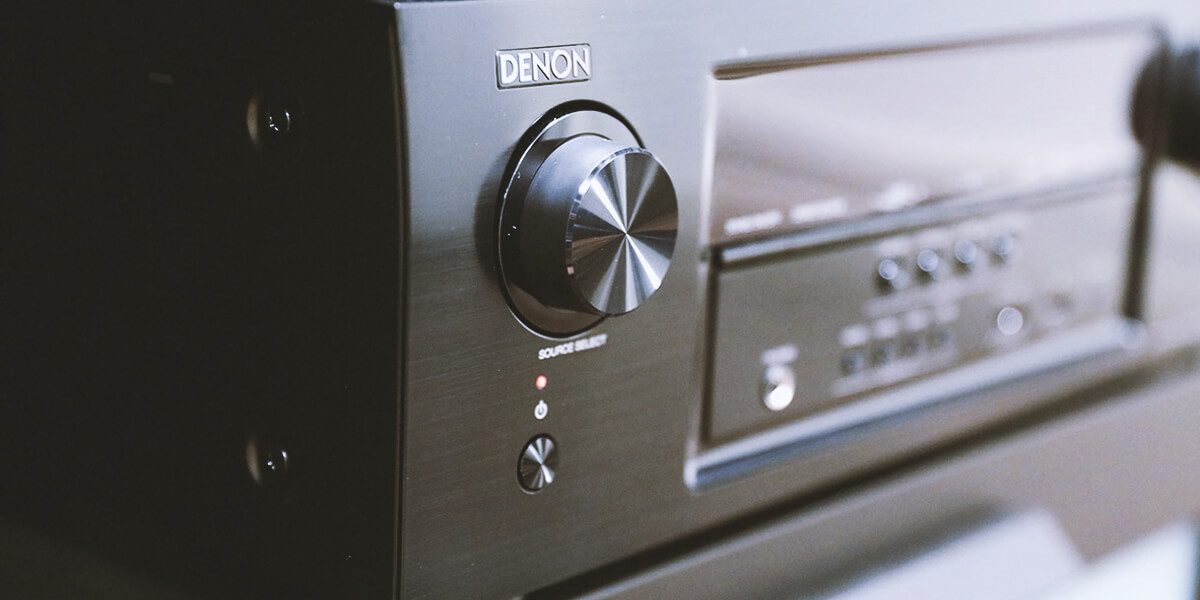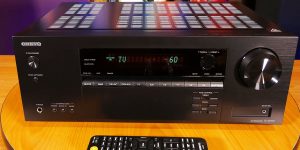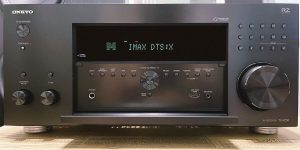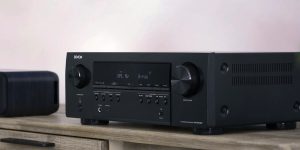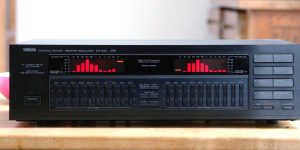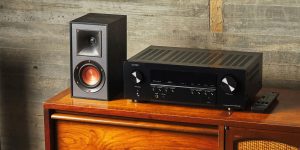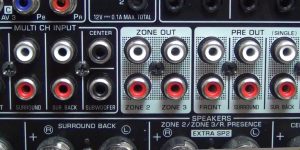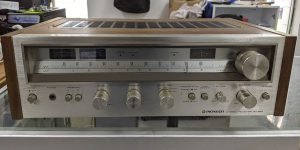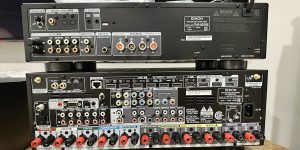AV receivers and amplifiers function as key elements in audio systems, each contributing significantly to producing top-tier sound. While they possess some common features, these devices are fundamentally distinct, serving specific purposes. In this comprehensive comparison of receiver vs. amplifier, I will explore their distinctions, evaluate their advantages and disadvantages, and address common questions related to these audio devices.
What is an amplifier?
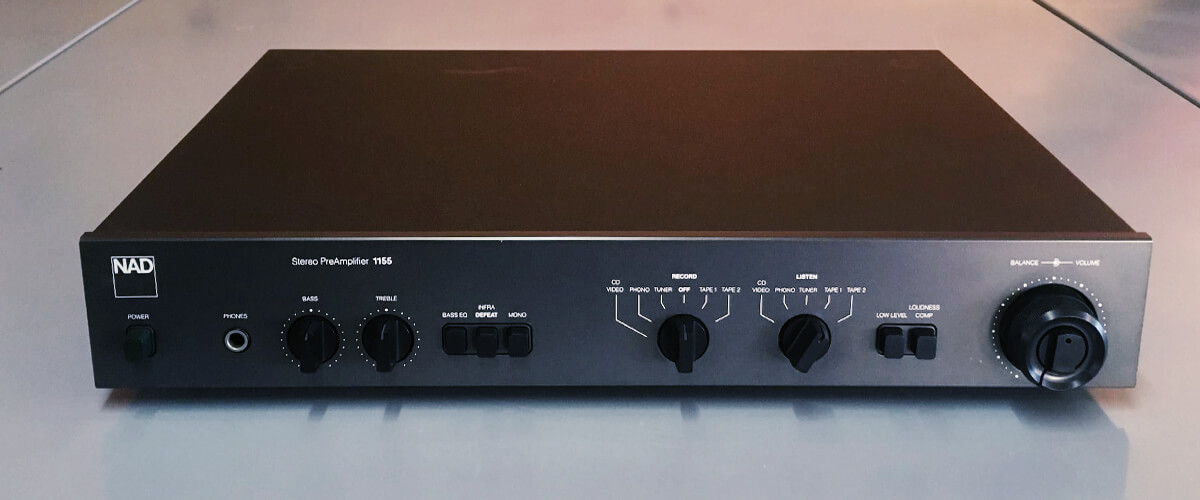
An amplifier is a device engineered to boost an audio signal’s power, allowing speakers to produce sound at higher volumes. Various amplifier configurations exist, including preamplifiers, power amplifiers, and integrated amplifiers, each offering unique functions and uses.
Preamplifier
A preamplifier handles and manages the audio signal before its transmission to the power amplifier. It generally provides such options as input selection, volume regulation, and tonal modification. A preamplifier’s primary role is to boost weak audio signals from sources like turntables or microphones to line-level strength, readying them for additional amplification via a power amplifier.
Power Amplifier
The primary purpose of a power amplifier is to magnify the line-level audio signal received from a preamplifier, providing the necessary power for speakers to function at higher volumes. Power amplifiers generally lack input selection or volume adjustment capabilities since they are exclusively engineered for amplification purposes.
Integrated Amplifier
An integrated amplifier merges the roles of a preamplifier and a power amplifier within a single unit. This configuration streamlines the audio system by minimizing component count and related wiring. Integrated amplifiers frequently offer cost and space efficiency compared to discrete preamplifiers and power amplifiers, making them popular for numerous users in cases where exceptional sound quality is not a higher priority than cost or interior requirements.
Home theater amplifier
A home theater amplifier is a device designed to boost audio signals in surround sound systems, ranging from basic 5.1-channel to advanced setups like 7.1, 9.1, and Dolby Atmos. Working with preamplifiers or AV receivers, it drives multiple speakers at higher volumes, delivering clear, dynamic, and immersive sound for a cinematic experience. Some home theater amps also offer built-in digital signal processing, room calibration, and multiple power output channels for different speaker configurations.
What is a receiver?
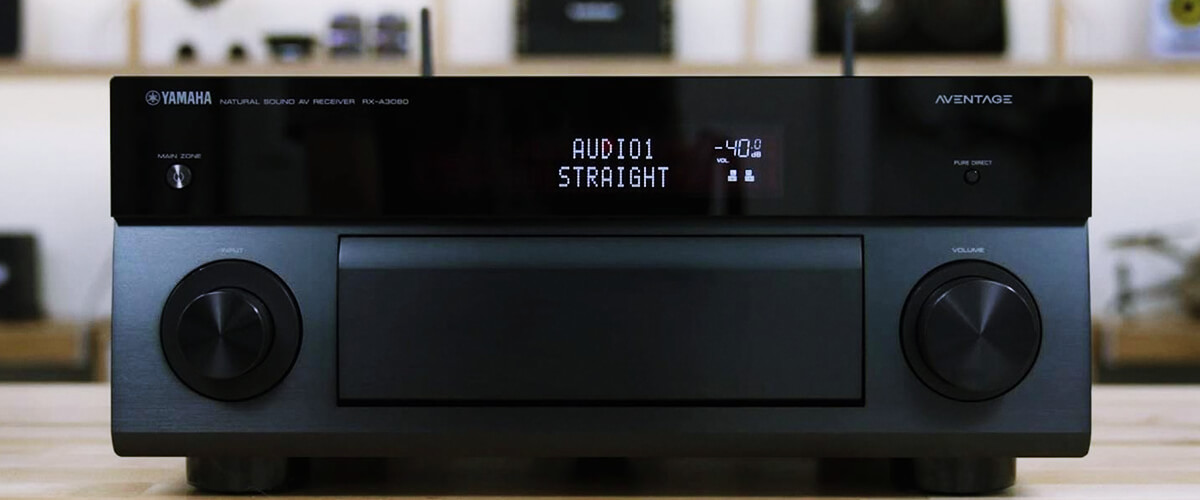
A receiver is a versatile piece of equipment that unifies the roles of an amplifier while offering added functionalities, such as radio tuning and support for multiple audio and video inputs. Receivers come in two main types: stereo receivers and AV receivers.
Stereo Receiver
Stereo receivers are audio components primarily engineered for a two-channel listening experience, as the majority of music enthusiasts prefer stereo sound for its immersive qualities. These receivers act as a balanced solution for audiophiles, granting the ability to connect a wide array of audio equipment, including televisions and vinyl record players, among others. By prioritizing the enhancement of stereo audio, these receivers cater to those who seek a rich and authentic sound experience without the need for a complex multichannel setup.
AV Receiver
An AV receiver (AVR) is a versatile device that serves as the central hub for home theater systems, merging audio and video processing, amplification, and source management. It combines the functions of a preamplifier, power amplifier, and audio/video switching, along with numerous additional features designed to enhance home entertainment.
AVR decodes and processes various audio and video formats and can work with surround sound. They provide multiple inputs for connecting devices such as Blu-ray players, gaming consoles, streaming devices, and cable or satellite TV boxes, allowing seamless switching between sources. They also include video upscaling capabilities, network and wireless connectivity, built-in radio tuners, multi-zone capabilities, and customization options for audio settings.
Differences between a receiver and an amplifier
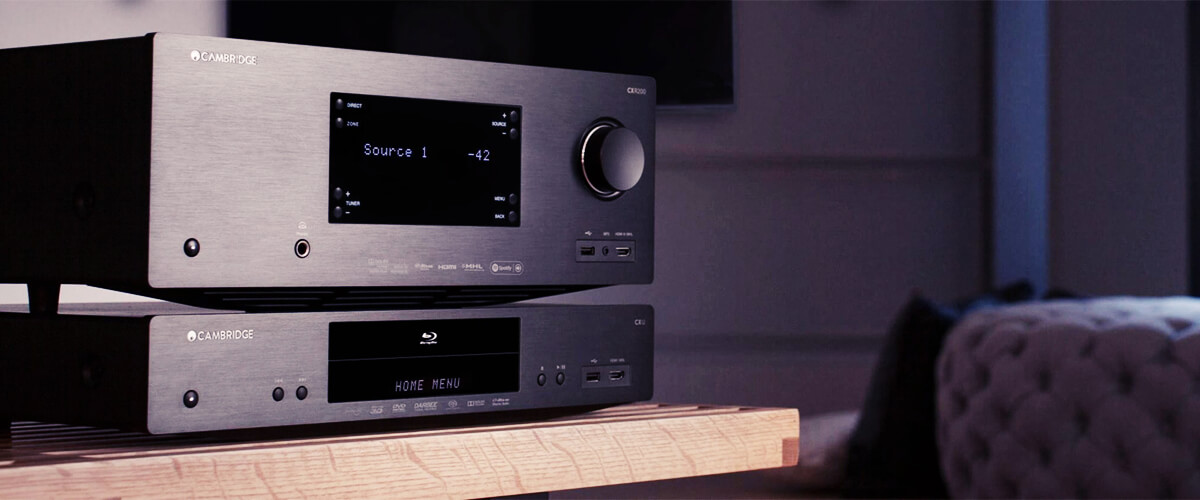
The difference between an amplifier and a receiver lies in their functions and features. A power amplifier is a separate component whose sole focus is amplifying audio signals, while a receiver combines amplification with other features. Therefore, the choice between an AV receiver and an amplifier depends on the intended use and desired characteristics.
For home cinema setups, an AV receiver is frequently the superior choice. Conversely, an amplifier is preferred for those who seek a dedicated device for high-quality audio playback. Amplifiers typically prioritize audio performance, offering cleaner and more powerful amplification compared to receivers.
AV receiver pros and cons
Pros
- Streamline the process of setting up a home theater by combining multiple functions into one device.
- Supports various surround sound formats, enhancing the immersive experience of movies and other multimedia content.
- Can handle multiple audio and video sources, simplifying the connection and management of different components in a home theater system.
- Many AV receivers come with integrated streaming services and radio tuners, providing easy access to a wide range of content.
Cons
- While AV receivers offer excellent sound quality, dedicated amplifiers can sometimes deliver superior audio performance, especially for discerning audiophiles.
- Due to their numerous features and functions, they might require more effort to configure and operate compared to standalone amplifiers.
- AVRs can have a higher price tag, primarily because they combine multiple functions and capabilities.
Amplifier pros and cons
Pros
- Prioritize audio performance, often delivering cleaner and more powerful sound compared to receivers.
- With fewer features and functions, they typically require less effort to set up and operate.
- Being solely focused on audio amplification, they can potentially reduce signal interference that may occur in receivers due to the integration of multiple functions and features.
Cons
- Amplifiers focus on audio amplification and are narrowly specialized. They do not have the versatility of AV receivers.
- To build a comprehensive audio or home theater system, additional components like preamplifiers and tuners may be necessary when using an amplifier.
- May not provide the flexibility needed to accommodate future upgrades or expansions in an audio system.

